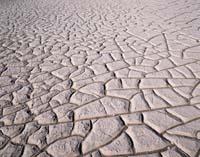Evidence of an old drought in Africa

Studying the sediments at the bottom of Lake Malawi, researchers conclude that Africa suffered a long drought period. This drought occurred between 75,000 and 135,000 years ago, so it is believed that many hominids of the time died. Their discovery may have a great influence on theories about the origin of modern man.
The remains of the drought have been obtained through the study of the underground sediments of the lake. In the sample that has been extracted from there, it has been possible to verify that formerly the amount of water had decreased by 95% and it has been concluded that the proximity of the lake was very arid. However, from 70,000 years ago the climate became more rainy. The researchers have documented a remarkable increase in the level of Lake Malawi and other nearby waters. According to experts, climate change would allow the migration of the population. It is believed that the African hominids were in search of more humid areas and thus reached Eurasia.
The researchers believe that the data obtained reinforce the hypothesis of “Out of Africa” or “Out of Africa” with a climate test that so far did not have. This hypothesis places the origin of modern man in Africa. He argues that from there it spread throughout the planet and replaced the hominids of other areas. The researchers think that the drought caused the death of several African hominids and the survival of Homo sapiens. The test of the subsequent wet stage would explain the migration advocated by Out of Africa.
Buletina
Bidali zure helbide elektronikoa eta jaso asteroko buletina zure sarrera-ontzian











